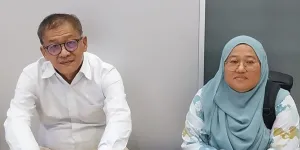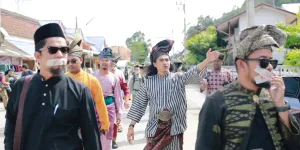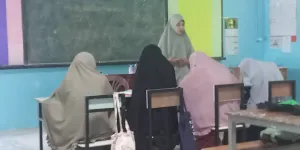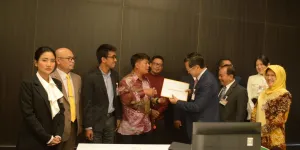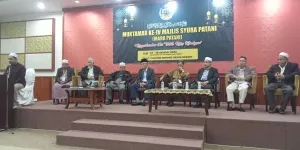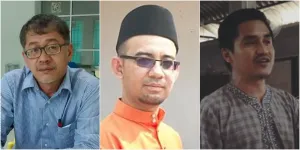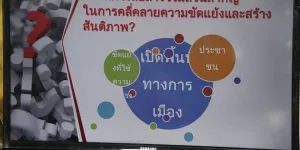22 ก.ย. 2558 ผู้สื่อข่าวรายงานว่า พ.อ.บรรพต พูลเพียร โฆษกกองอำนวยการรักษาความมั่นคงภายในราชอาณาจักร เปิดเผยคำชี้แจงของ พล.อ.อักษรา เกิดผล หัวหน้าคณะพูดคุยเพื่อสันติสุขจังหวัดชายแดนภาคใต้ โดยส่งข้อความแถลงข่าวทั้งภาษาไทยและภาษาอังกฤษไปยังสื่อมวลชน พร้อมภาพถ่ายคณะพูดคุยเพื่อสันติสุขจังหวัดชายแดนภาคใต้ทั้งคณะ 13 คนเป็นครั้งแรกด้วย
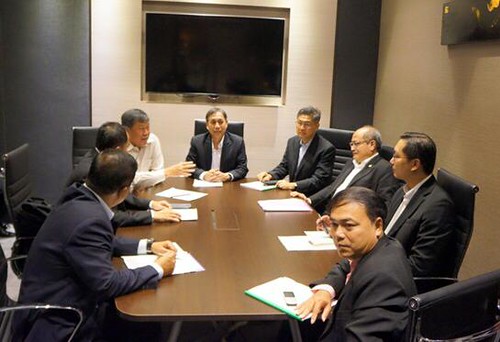
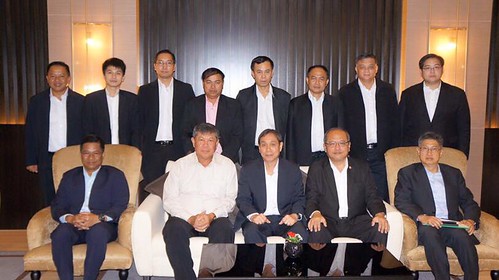
โดยในภาพภาพถ่ายคณะพูดคุยเพื่อสันติสุขดังกล่าว มีรายชื่อที่สามารถเปิดเผยได้ 9 คน ประกอบด้วย พล.อ.อักษรา เกิดผล (แถวนั่งกลาง), พล.ต.นักรบ บุญบัวทอง, พล.อ.กิตติ อินทศร, นายขวัญชาติ วงศ์ศุภรานันท์, พล.ท.ชินวิตร แม้นเดช, นายศรันย์ เจริญสุวรรณ, นายไตรรัตน์ แพรกทอง, นายชาญเชาว์ ไชยานุกิจ และนายพรชาติ บุนนาค
สำหรับเนื้อหาคำชี้แจงของ พล.อ.อักษรา มีเนื้อหาทั้งหมด ดังนี้
“ตลอดห้วงระยะเวลา 11 ปีที่ผ่านมา รัฐบาลไทยได้พยายามแก้ไขปัญหาความไม่สงบในพื้นที่จังหวัดชายแดนภาคใต้มาอย่างต่อเนื่อง โดยได้ใช้กำลังทั้งทหาร ตำรวจ และพลเรือน พร้อมอาวุธยุทโธปกรณ์จำนวนมาก ใช้มาตรการทางกฎหมาย ใช้การปฏิบัติการทางทหาร และงานมวลชนทุกรูปแบบ เพื่อยุติเหตุความรุนแรงในพื้นที่ แต่ก็ยังไม่ประสบผลสำเร็จ สาเหตุเป็นเพราะกลุ่มผู้ก่อเหตุรุนแรงยังคง “มีขีดความสามารถ” และยังดำรงความเป็น “ฝ่ายริเริ่ม” ในการปฏิบัติการก่อเหตุในทุกโอกาส และบีบบังคับให้เจ้าหน้าที่ต้องกลับมาเป็นฝ่ายรับ และสร้างความสูญเสียต่อชีวิตและทรัพย์สินของประชาชนผู้บริสุทธิ์
ดังนั้นคณะพูดคุยเพื่อสันติสุขจังหวัดชายแดนภาคใต้ จึงได้เริ่มต้นติดต่อพูดคุยกับกลุ่มผู้เห็นต่างจากรัฐทุกกลุ่ม ทุกฝ่าย ให้เข้ามาร่วมบนโต๊ะพูดคุยโดยให้เหตุผลว่า ความรุนแรงจะไม่เกิดประโยชน์ต่อฝ่ายใด นอกจากนั้นเมื่อเกิดเหตุการณ์ความรุนแรงทุกครั้งทำให้รัฐบาลไทยจำเป็นต้องเพิ่มกำลังพลและยุทโธปกรณ์ รวมทั้งความเข้มข้นในการบังคับใช้กฎหมาย ตลอดจนการเพิ่มประสิทธิภาพการปฏิบัติการปิดล้อมตรวจค้นจับกุมมากขึ้น ซึ่งจะไม่เกิดผลดีต่อฝ่ายใด และชี้ให้เห็นว่าการพูดคุยคือทางออกที่ดีที่สุดของทุกฝ่าย ซึ่งก็ได้รับความร่วมมือจากกลุ่มผู้เห็นต่างฯ ที่พยายามรวมตัวกันทั้ง 6 กลุ่ม เข้ามาร่วมพูดคุยแบบเต็มคณะอย่างไม่เป็นทางการจนถึงปัจจุบันรวม 3 ครั้ง
หัวหน้าคณะพูดคุยฯ ขอเรียนว่ารัฐบาลได้พยายามแก้ไขปัญหาจังหวัดชายแดนภาคใต้โดยฝ่ายเดียวมาตลอด จนถึงบัดนี้ได้มีกลุ่มผู้เห็นต่างจากรัฐได้เข้ามา “ร่วมมือ” กับรัฐในการช่วยกันแก้ไขปัญหา โดยมีภาคประชาชนจับตามองและให้การสนับสนุน รวมทั้งเป็นสักขีพยานในความร่วมมือดังกล่าว จึงนับว่าเป็นผลดีต่อการแก้ไขปัญหาจังหวัดชายแดนภาคใต้ ซึ่งยังไม่เคยเกิดขึ้นมาก่อน และเป็นความสำเร็จที่สำคัญ แต่เป็นที่น่าเสียดายที่ยังมีคนคิดแบบเก่า ไม่เชื่อมั่นในกระบวนการพูดคุย ยังคิดว่า เป็นการยกระดับองค์กรเพื่อนำไปสู่การแบ่งแยกดินแดน ซึ่งไม่ใช่สิ่งที่ทำได้ง่ายในปัจจุบัน เพราะมีภาคประชาชนคอยสังเกตตรวจสอบอยู่ตลอดเวลา และในอนาคตเชื่อว่า จะไม่มีเฉพาะ Party A และ B ที่คุยกันเท่านั้น แต่จะมีภาคประชาชนเข้ามาร่วมพูดคุย และเป็นผู้กำหนด Road Map ในการแก้ไขปัญหาจังหวัดชายแดนภาคใต้อย่างยั่งยืนต่อไป เพียงแต่ในขั้นตอนแรกคณะพูดคุยฯ จำเป็นต้องสร้างความไว้วางใจและความร่วมมือกับกลุ่มผู้เห็นต่างฯ ให้เกิดขึ้นก่อน และความร่วมมือดังกล่าวจะส่งผลให้ความรุนแรงในพื้นที่ลดลงมาโดยลำดับ
สำหรับการพูดคุยเพื่อสันติสุข ที่คณะพูดคุยฯ ดำเนินการอยู่นั้น เป็นการพูดคุยเพื่อ “ลดความตั้งใจ” (Intention) ในการใช้ความรุนแรงของผู้เห็นต่างจากรัฐทุกกลุ่มแล้วหันมาใช้ขีดความสามารถที่มีอยู่ในทาง “สันติวิธี” มากกว่าการใช้ขีดความสามารถสร้างความรุนแรงในการก่อเหตุเหมือนที่ผ่านมา ซึ่งจะแตกต่างจากเดิมที่เข้าใจว่าต้องเจรจาต่อรองตกลงกันก่อนว่า ฝ่ายหนึ่งจะได้อะไร อีกฝ่ายจะได้อะไร และต้องการอะไร เพราะวิธีคิดแบบโบราณนั้นจะนำมาซึ่งความได้เปรียบกันในเวทีพูดคุย โดยเป็นการชิงไหวชิงพริบกันและสร้างความหวาดระแวงมากกว่าความไว้วางใจ ซึ่งแตกต่างโดยสิ้นเชิงกับสิ่งที่คณะพูดคุยฯ กำลังดำเนินการอยู่คือ สร้างความไว้วางใจเพื่อแสวงหา “ความร่วมมือ” ในการแก้ปัญหาความรุนแรงร่วมกันโดยพยายามชี้ให้เห็นว่า หากใช้ความรุนแรงต่อไปก็จะไม่มีฝ่ายใดได้รับชัยชนะเด็ดขาดแม้เวลาจะผ่านไปอีกหลายสิบปี แต่สิ่งที่เสียหายคือ บ้านเมือง ประเทศชาติ และความสูญเสียของพี่น้องประชาชน รวมทั้งอนาคตที่มืดมนของบุตรหลาน และไม่มีฝ่ายใดได้ประโยชน์อะไรเลย ดังนั้นการพูดคุยเพื่อให้เกิดความร่วมมือต่างหากที่เป็นสิ่งสำคัญว่า เราจะเริ่มต้นร่วมมือกันอย่างไร? ในเรื่องอะไร ทั้งเรื่องความปลอดภัย การพัฒนา และความยุติธรรมที่เท่าเทียมกัน
กล่าวโดยสรุปในปัจจุบันคณะพูดคุยฯ ได้จัดตั้งคณะทำงานในแต่ละเรื่องแล้วเพื่อจัดทำร่างชุดความคิด (Package) กระบวนการยุติธรรม แบ่งกลุ่มประเภทแยกความผิดแต่ละกรณี และกำหนดแนวทางดำเนินการผ่อนผันตามกรอบของกฎหมายไทย เพื่อให้กลุ่มผู้เห็นต่างฯ ได้เลือกให้ตรงความต้องการของแต่ละกลุ่ม หรือเป็นบุคคล สำหรับเรื่องการพัฒนา และเรื่องพื้นที่ปลอดภัยก็เช่นเดียวกัน ได้จัดตั้งคณะทำงานเพื่อกำหนดเป็นชุดความคิดของการพัฒนาในเรื่องสำคัญเร่งด่วนแต่ละเรื่องให้ตรงใจกับพี่น้องประชาชน และพื้นที่ปลอดภัยทั้งในชุมชนเขตเมือง ชนบทป่าเขา เส้นทางสัญจร และพื้นที่ชายแดนว่า จะเริ่มพื้นที่ใดก่อนไม่ว่าจะเป็นหมู่บ้าน ตำบล อำเภอ หรือจังหวัด ทั้งนี้ขึ้นอยู่กับขีดความสามารถ และความพร้อมของฝ่ายรัฐ รวมทั้งความร่วมมือของกลุ่มผู้เห็นต่างฯ ที่ต้องร่วมกันกำหนด และเลือกวิธีการที่เหมาะสมต่อไป
ทั้งนี้ถ้าหากทุกท่านมองด้วยใจเป็นธรรมแล้วจะเห็นได้ว่า ประเด็นของ “มารา ปาตานี” นั้น ที่จริงแล้วก็คือเรื่องเดียวกันกับประเด็นของคณะพูดคุยฯ โดยสามารถปรับเข้าหากันได้ทุกเรื่อง เช่น การยอมรับใน “มารา” สามารถสร้างให้เกิดขึ้นได้ด้วยการพิสูจน์ให้เห็นในเรื่องความปลอดภัยของพื้นที่ร่วมกัน รวมทั้งการร้องขอให้ “การพูดคุย” เป็นวาระแห่งชาติ ก็สามารถพิสูจน์ได้ด้วยการพัฒนาที่สังคมทั้งประเทศยอมรับ ตลอดจนการขอสิทธิคุ้มครองทางกฎหมาย (Immunity) ก็เป็นเรื่องของกระบวนการยุติธรรมที่ทุกฝ่ายสามารถเข้าถึงได้นั่นเอง ทั้งหมดนี้สามารถแสวงหาความร่วมมือตกลงกันได้บนโต๊ะพูดคุย และแม้ว่าอาจต้องใช้เวลาบ้าง แต่ก็จะไม่มีเหตุการณ์ความรุนแรงในพื้นที่ จชต.
โดยความก้าวหน้าล่าสุด คณะพูดคุยฯ สามารถสร้างความเห็นชอบร่วมกันกับผู้อำนวยความสะดวก และกลุ่มผู้เห็นต่างจากรัฐ (Party B) ในการจัดตั้งคณะทำงานด้านเทคนิคร่วม ซึ่งประกอบด้วยทุกฝ่าย ทั้ง Party A, Party B และผู้อำนวยความสะดวก รวมทั้งในอนาคตอาจมีภาคประชาชนเข้าร่วมด้วย เพื่อกำหนดรายละเอียดในการทำงานร่วมกันให้เกิดความสันติสุขในพื้นที่จังหวัดชายแดนภาคใต้อย่างยั่งยืนต่อไป”
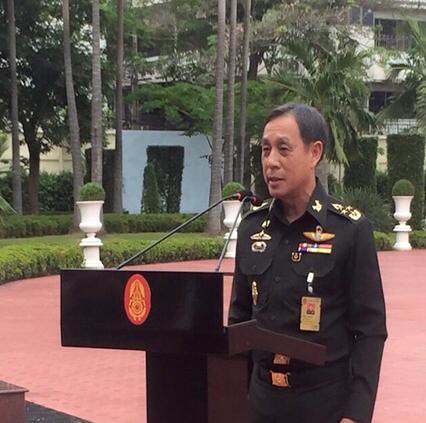
พล.อ.อักษรา เกิดผล
color:#141823">
|
Dialogue to Foster Harmony in the Southern Border Provinces General Aksra Kerdphol Head of the Peace Dialogue Panel 22 September 2015 In the past 11 years, the Royal Thai Government has tried continuously to resolve the conflict in the southern border provinces though the use of military, police and civilian forces with a large amount of weaponry along with all types of legal measures, military operations, and civic action programs to end violence in the area. However, these various attempts still have not been achieved because perpetrators of violence still have “capability” and still retain their action as “initiator” to carry out operations on every occasion, thus, forcing government officials to be on the defense and result in the loss of life and properties of innocent people. Therefore, the Peace Dialogue Panel for Southern Border Provinces, consequently, reached out to every group of people who have different opinions from the state, urging them to participate in dialogue. This is based on the belief that violence will not do any good for any side. Apart from this, when violent incidents occur, it results in a necessity of the government to increase a number of troops and weaponry and impose stricter law-enforcement measures, and tougher military operations such closed-area search and more arrests. This is not a positive outcome for any sides and brings us to a conclusion that dialogue is the best solution for everyone. So far, we have witnessed cooperation from people with different opinions who tried to unite their 6 different groups to participate in an informal full-panel dialogue which up until now has been held for 3 times. I, as the head of dialogue panel, would like to state that in the past the government side tried to resolve the problem in southern border provinces in a unilateral manner. But now, we see the situation where people with different opinions “cooperate” with us to mutually resolve the problem while the people sector closely monitor, support and take part as witness for this cooperation. This is a positive development for resolving problems in the southern border provinces which is unprecedentedly an important success. Regrettably, there are still people who still have a conservative mindset and do not have confidence in the dialogue process by misbelieving that this development is an elevation of the group status paving ways towards territorial separation. This is not something which can be easily done nowadays as the people sector always keeps an eye on this. And in the future, I personally believe that not only that Party A and B will talk to each other, but this people sector will join in the dialogue and define a roadmap for sustainable solution to the southern border provinces problem together. However, at the first stage, the dialogue panel needs to build trust and cooperation from the group with different opinions and, consequently, that cooperation will result in the gradual reduction of violence in the area. For the peace dialogue that the panel currently works on is the dialogue which aims to “reduce intention” to use violence from all groups of people with different opinions and turn to use their current capability in an “peaceful way” instead of opting for violence like in the past. This is contrary from what most people understand that there must be negotiation and agreement on what we can get and what they can get. This concept, which concerns bargaining for advantages, is out of date and will only cause more and more paranoia from each side rather than trust. This is totally different from what are doing now which emphasizes trust and confidence building to seek “cooperation” to jointly resolve violent problems together. We have tried to point out that if the use of violence persists, there will be no side who has complete victory but only damage to the country, loss of our brothers and sisters, and dark future of our children. Therefore, dialogue to foster cooperation is in fact an important thing determining how we can work together on the issues of safety, development and fair justice for all. In summary, at present the dialogue panel has already set up a working group to work on each issue for justice process, there will be classification of each offence and determine possible ways for exemption under Thai legal framework so that people with different opinions can choose whatever is right for each group or each individual. For the issue of development and safety zones, working groups have been set up to identify urgent priorities which serve the need of our brother and sisters and identify safety zones in urban community, rural areas, transportation routes, and border areas. Discussion about which area, village, tambon, district or province will first be a pilot safety zone project depends on the capability and preparedness of the government side and also cooperation from people with different opinions who will need to consider and choose the most appropriate methods together in due course. The latest progress of dialogue panel is that we can mutually agree with the facilitator and group of people with different opinions from the state (Party B) on the formation of joint technical working group consisting of Party A, Party B, the facilitator, and the people sector will participate in the future in order to work on details together to make sustainable peace and harmony in the southern border provinces. |

ร่วมบริจาคเงิน สนับสนุน ประชาไท โอนเงิน กรุงไทย 091-0-10432-8 "มูลนิธิสื่อเพื่อการศึกษาของชุมชน FCEM" หรือ โอนผ่าน PayPal / บัตรเครดิต (รายงานยอดบริจาคสนับสนุน)

